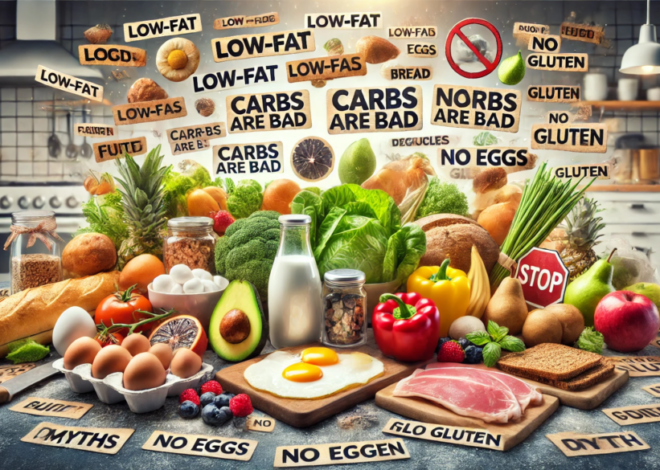
Does Eating After 7 PM Cause Weight Gain? The Truth Revealed
Eating after 7 PM is often blamed for weight gain, but is this really true? Despite widespread belief, scientific evidence suggests that weight gain is more about overall calorie intake and activity level rather than meal timing. Studies show that late-night eating may lead to weight gain due to a tendency for higher calorie consumption and poor food choices, not the time itself. Understanding these nuances can help demystify this myth and guide healthier eating habits. This article explores the origins of the belief, provides scientific insights, and offers practical advice on managing meal times effectively.
Understanding the Myth Behind Eating After 7 PM
The idea that eating after 7 PM leads to weight gain is a widespread notion. This belief has influenced eating habits, often leading people to avoid late-night meals. But where did this myth originate, and does it hold any scientific truth? This section delves into the origins of this myth, examines scientific studies on meal timing, and clarifies common misconceptions about late-night snacking.
Origins of the Eating After 7 PM Weight Gain Myth
The belief that late-night eating causes weight gain has roots in cultural norms and misunderstood diet advice. Historically, many cultures have emphasized early dinners, linking them to healthy living. Additionally, early diet trends suggested that metabolism slows at night, leading to weight gain. However, these ideas often lack a scientific basis, evolving more from anecdotal beliefs than empirical evidence. The myth persists because it’s an easy concept to grasp and often repeated in diet circles. However, understanding its origins helps debunk its validity.
Scientific Studies on Meal Timing and Weight Management
Recent studies reveal meal timing’s limited impact on weight management compared to overall caloric intake. Research indicates that energy balance, or calories consumed versus burned, is the primary factor in weight gain. Studies have shown no significant difference in weight loss between those who eat early versus late, provided calorie intake stays consistent. The focus should shift from timing to the quality and quantity of food consumed throughout the day. These findings suggest that the timing myth is less critical than previously believed.
Common Misconceptions About Late-Night Snacking
Late-night snacking is often unfairly blamed for weight gain. Misconceptions include the belief that calories consumed at night count more than those eaten earlier. In reality, the body processes calories the same way regardless of the time. Late-night snacks often consist of high-calorie, low-nutrient foods, contributing to weight gain. A mindful approach to snacking, with healthier options, can dispel these myths. Addressing these misconceptions can lead to better-informed choices about when and what to eat.
Analyzing the Impact of Eating Late on Metabolism and Weight
Eating late at night raises questions about its effects on metabolism and weight. Many believe it disrupts the body’s natural rhythms, leading to weight gain. This section explores how late-night eating interacts with metabolic rates and circadian rhythms and compares the impact of meal timing versus caloric intake.
How Late-Night Eating Affects Metabolic Rate
The relationship between late-night eating and metabolic rate is complex. Some studies suggest that eating late can affect the body’s ability to burn calories efficiently. However, the metabolic slowdown is more closely tied to sleep patterns and overall lifestyle. People who stay up late often have disrupted sleep cycles, which can affect metabolism. Insufficient sleep is linked to hormonal changes that influence hunger and energy use, rather than the timing of meals alone. A balanced routine with adequate sleep can mitigate these effects.
The Role of Circadian Rhythms in Digestive Efficiency
Circadian rhythms are natural processes that regulate the sleep-wake cycle and influence how the body processes food. Eating against these rhythms, such as late at night, can affect how efficiently the body digests food. Research indicates that digestion is less efficient during the body’s natural rest period. Aligning meal times with circadian rhythms can enhance digestive efficiency and support metabolic health. This understanding helps tailor eating habits to internal clocks for better health outcomes.
Comparing Caloric Intake vs. Timing of Meals
When considering weight management, caloric intake outweighs the timing of meals. Consuming more calories than the body needs leads to weight gain regardless of meal timing. Studies emphasize the importance of maintaining a balanced energy intake throughout the day. Timing may play a role in how energy is utilized, but its impact is minimal compared to total calorie consumption. Focusing on balanced meals rather than stressing over timing can help achieve weight management goals.
Practical Tips for Healthy Eating Habits Throughout the Day
Developing healthy eating habits is essential for maintaining optimal health and weight. This section provides practical tips for balancing nutrient intake, choosing healthy snacks, and creating a meal plan that supports weight management throughout the day.
Balancing Nutrient Intake Across Different Meal Times
Nutrient balance is key at any time of day. Start with a protein-rich breakfast to fuel the day, and ensure each meal contains a mix of proteins, carbohydrates, and healthy fats. Spacing meals evenly can prevent overeating and keep energy levels steady. Consider portion sizes and avoid skipping meals. Including a variety of food groups ensures that the body receives necessary nutrients. Emphasize whole foods, and limit processed options to enhance nutrient intake and support overall health.
Healthy Snack Options for Late-Night Cravings
Late-night cravings can be challenging, but choosing the right snacks can satisfy hunger without derailing health goals. Opt for snacks like Greek yogurt, mixed nuts, or fruit, which provide nutrients without excess calories. Herbal tea or a small portion of dark chocolate can curb cravings mindfully. Keeping track of portion sizes helps prevent excessive late-night eating. Planning ahead with healthy options ensures better choices when hunger strikes and maintains dietary goals.
Creating a Balanced Meal Plan for Weight Management
A balanced meal plan supports weight management and overall health. Start by assessing caloric needs and distributing them across meals and snacks. Incorporate a variety of food groups, focusing on whole grains, lean proteins, and plenty of fruits and vegetables. Adjust the portion sizes based on activity levels and personal health goals. Plan meals in advance to reduce the temptation of unhealthy choices. Regularly review and adapt the meal plan to align with lifestyle changes and nutritional needs.
Conclusion
The myth that eating after 7 PM leads to weight gain is not supported by scientific evidence. Weight gain is more about what and how much you eat rather than the specific time you eat. Caloric balance is crucial, emphasizing the total daily intake over the timing of meals. Late-night eating may affect sleep for some, potentially leading to other health issues. Personal lifestyle and individual metabolism should be considered when planning meals.
FAQ
Is it unhealthy to eat after 7 PM?
Eating after 7 PM isn’t inherently unhealthy. What matters is the quality and quantity of food consumed. Focus on balanced meals with lean proteins, whole grains, and vegetables to maintain good health.
What are the effects of eating late at night on weight loss?
Late-night eating can hinder weight loss if it leads to consuming more calories than your body needs. Opt for lighter meals if you eat late to help manage calorie intake effectively.
Does eating dinner after 7 PM influence metabolism negatively?
Eating late doesn’t directly affect metabolism negatively. However, large meals before bed may disrupt sleep, indirectly impacting metabolic rate over time. Aim for a consistent eating schedule and avoid heavy meals at night.
Can eating after 7 PM lead to poor digestion?
Eating close to bedtime might cause digestive discomfort, such as acid reflux or bloating. Allowing a few hours between dinner and sleep can support better digestion.
What is the best time to have dinner for optimal health?
There’s no universal best time for dinner, but eating 2-3 hours before sleeping promotes better digestion and sleep quality. This timing allows your body to process food effectively.
Are there any benefits to eating before 7 PM?
Eating before 7 PM can align with natural circadian rhythms, potentially supporting better sleep and digestion. It might also help in managing calorie intake throughout the day.











